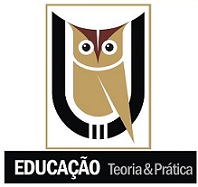Os enunciados da função social da escola nos discursos de educandos jovens e adultos
DOI:
https://doi.org/10.18675/1981-8106.vol23.n42.p54-71Keywords:
EJA. Função social da escola. Discurso.Abstract
A escola ainda é uma instituição privilegiada para muitos educandos da modalidade educação de jovens e adultos (EJA), uma vez que oportuniza, entre outras coisas, o acesso ao saber socialmente valorizado e por qualificar esses educandos com os instrumentos da leitura, da escrita e dos fundamentos básicos da matemática. O presente artigo investiga os discursos sobre a função social da escola, de educandos jovens e adultos de uma escola pública, localizada na comunidade Mumbaba I, no Distrito Industrial de João Pessoa/PB. Aporta-se na análise do discurso, na perspectiva arqueológica preconizada por Foucault (2000). Os dados foram coletados a partir de entrevistas semiestruturadas. Os resultados permitiram identificar discursos que convergem para um entendimento de que a escola é a porta de acesso aos códigos linguísticos, à formação do caráter e à formação profissional, elementos essenciais que permitem às camadas populares uma melhor interação social e as ferramentas para o exercício pleno da cidadania.Downloads
Additional Files
Published
How to Cite
Issue
Section
License
Authors who publish in this journal agree to the following terms:
a) Authors assign copyright to the journal, with the work simultaneously licensed under the Creative Commons Attribution License that allows sharing of the work with acknowledgment of authorship and publication in this journal.
b) The policy adopted by the Editorial Committee is to assign copyright only after a period of 30 months from the date of publication of the article. After this time, authors interested in publishing the same text in another work must send a letter to the Editorial Committee requesting the release of the assignment of copyright and wait for a response.
c) This journal provides public access to all its content, since this allows greater visibility and reach of published articles and reviews. For more information on this approach, visit the Public Knowledge Project, a project that developed this system to improve the academic and public quality of research, by distributing OJS as well as other software to support the public access publication system to academic sources. The names and email addresses on this website will be used exclusively for the purposes of the journal and will not be available for other purposes. This journal provides open any other party  This work is licensed under a Creative Commons License
This work is licensed under a Creative Commons License











